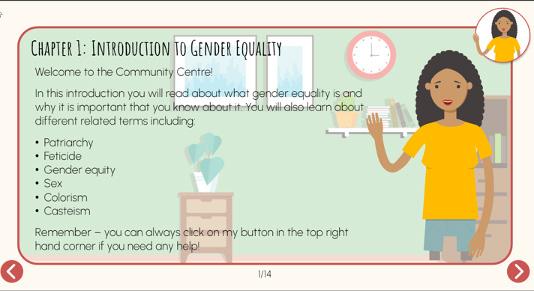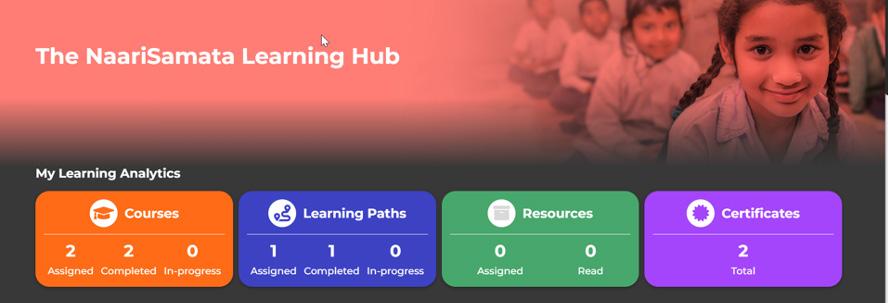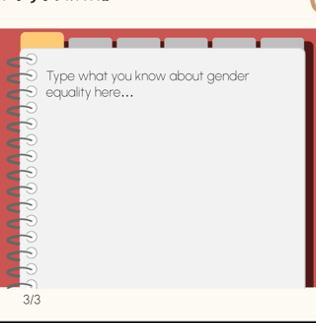
1 minute read
Project Shiksha
E-learning Course - Tackling gender discrimination through education.
At NaariSamatā, we recognise that educating younger generations about gender is vital in challenging persistent gender norms and the harmful inequities that arise from them.
Advertisement
Gender discrimination refers to the unequal or disadvantageous treatment of individuals based on gender, which is a construct of norms and behaviours ascribed by society, distinct from biological sex. It is a significant issue in India, particularly for women, where patriarchal structures dominate. Often stereotyped as physically weaker than men and not suited to physical tasks, women are frequently confined to low-paid employment in agriculture or expected to give up employment entirely after marriage to perform household work. Discrimination affects other areas of life, such as access to healthcare, food, and education, and can lead to gender-based violence.
Views around gender are taught – not innate. Challenging discrimination means challenging stereotypes. By educating younger generations on how gender expectations can hinder development for both boys and girls, and prevent them from realising their full potential, we can transform their behaviours and attitudes.
In order to improve awareness around gender issues, we created an interactive e-learning course, as part of our Shiksha Project, which teaches children about gender equality. It is aimed at schoolchildren aged 12-16 years old.
The course begins by unpacking what gender equality is, and how it might affect relationships and careers. Students are encouraged to write about their own initial understanding of gender equality and discrimination.
The lessons also cover how gender can intersect with colourism, casteism, sex, and social standing. Other important subjects that are often unaddressed in schools – including mental health, puberty, social media, LGBTQ+, substance misuse, and bullying – are also covered on the learning hub.


These topics are made accessible for younger audiences through easy-tofollow stories, interactive graphics, and engaging activities. The hub offers additional reading material and resources that can be used at home and in schools. A certificate of completion is awarded at the end of each training module in appreciation of participation.
This year we began testing the e-learning course by rolling out a pilot at our partner school, BMV Public School, in New Delhi. The course had been first assigned as a project over the holiday period for students, which resulted in low uptake and completion of the course. A second assignment of the course is due to take place during term time.
In addition to our ongoing efforts, we are currently developing other courses on important topics that are often overlooked in Indian schools. These include puberty education, anti-bullying strategies, and anger management techniques. By addressing these subjects, we aim to equip young people with valuable skills and knowledge that will support their personal growth and well-being.










